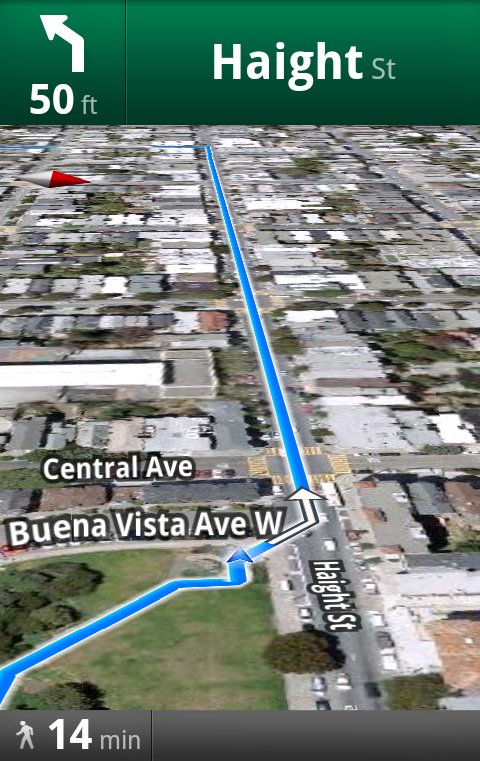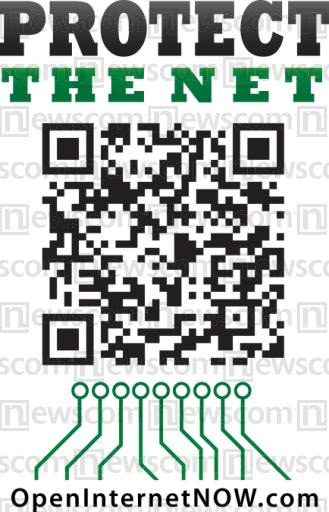Update 2: Verizon adds, "The NYT article regarding conversations between Google and Verizon is mistaken. It fundamentally misunderstands our purpose. As we said in our earlier FCC filing, our goal is an Internet policy framework that ensures openness and accountability, and incorporates specific FCC authority, while maintaining investment and innovation. To suggest this is a business arrangement between our companies is entirely incorrect.
Update: According to the Guardian, Google has dismissed reports that it is in talks with Verizon to bring an end to net neutrality.
The publication quotes a Google spokesperson as saying:""The New York Times is quite simply wrong. We have not had any conversations with Verizon about paying for carriage of Google traffic. We remain as committed as we always have been to an open internet."
Original Article: As you may have read by now, Google and Verizon are reportedly in talks or "near a deal" that could lead to Verizon offering paid tiers of Internet access. In other words, users could be charged more for better-quality access or quicker access to to some web content.
This of course goes against the principles of Network Neutrality , which Google has appeared to support in the past.
The New York Times, the Wall Street Journal, and the AP are all reporting similar stories on this with unnamed sources, but they all indicate a deal could be announced within days (even as soon as Friday).
Edward Wyatt with the NYT writes, "At issue for consumers is how the companies that provide the pipeline to the Internet will ultimately direct traffic on their system, and how quickly consumers are able to gain access to certain Web content. Consumers could also see continually rising bills for Internet service, much as they have for cable television."
There are a few key elements of these reports that seem to be getting widely overlooked. Wyatt, for example, says, "It is not clear that the Google-Verizon talks will result in a deal, or that any agreement would extend beyond those companies."
The Wall Street Journal reports, "People familiar with the negotiations said the companies have reached a tentative agreement on managing network traffic…" The publication also quotes a Verizon spokesperson, who says, "’We are currently engaged in and committed to the negotiation process led by the FCC’ that will  allow both sides to ‘reach a consensus that can maintain an open Internet and the investment and innovation required to sustain it.
allow both sides to ‘reach a consensus that can maintain an open Internet and the investment and innovation required to sustain it.
In addition, the WSJ notes: "Details are scarce."
There have already been a lot of opinions voiced in response to the reoprts, and I’m not saying they’re without merit. Jeff Jarvis writes, "What also concerns me is that creators will get screwed, too. Only the big guys will be able to afford to pay ISPs for top-tier service and so we return to the media oligarchy that — O, irony — YouTube and Google broke apart. Google, I fear, is gravitating back to the big-media side because it wants those brands on YouTube so it can get their advertisers on YouTube because those advertisers are still too stupid to see where the customers really are. And then we’re back to a world of big-media control over what we get to see. It was the millions of little guys — people who made their own videos, people who embedded videos — who made YouTube YouTube."
Om Malik at GigaOm says, "This agreement shouldn’t come as a surprise. The two companies are becoming increasingly close of late. Google is trying to make Android a major player in the mobile world. One of the company’s closest partners in this effort, in the U.S., is Verizon Wireless. It would therefore make sense that the two will come to some sort of an agreement."
Notice that both titles of these posts contain question marks: "Evil?" and "Did Net Neutrality Just Get Knifed in the Back?"
I think I like Greg Sterling’s response best. "It’s important to be cautious about drawing conclusions before the facts come out," he says.
We know that they’re "in talks" and private ones at that. A lot of this appears to be based on speculation and hearsay. Is Google really going to do a complete 180 on its stance on this issue? Maybe, but let’s see what happens.
Google said earlier this year, "Our goal is straightforward: ‘to keep the Internet awesome for everybody.’ The Internet was designed to empower users. Its open, "end-to-end" architecture means that users – not network providers or anyone else – decide what succeeds or fails online. It’s a formula that has worked incredibly well, resulting in mind blowing innovation, incredible investment, and more consumer choice than ever."
I’d keep an eye on Google’s Public Policy blog for comments from the company on this issue. I’d also keep an eye on the FCC’s OpenInternet.gov blog for their comments on the issue.
 The system operates under the control of Spectrum Bridge’s TV White Spaces Database, which assigns non-interfering frequencies to white spaces devices. This is to ensure that the TV white spaces network does not cause interference with licensed television broadcasts and other protected TV band users.
The system operates under the control of Spectrum Bridge’s TV White Spaces Database, which assigns non-interfering frequencies to white spaces devices. This is to ensure that the TV white spaces network does not cause interference with licensed television broadcasts and other protected TV band users. 


 allow both sides to ‘reach a consensus that can maintain an open Internet and the investment and innovation required to sustain it.
allow both sides to ‘reach a consensus that can maintain an open Internet and the investment and innovation required to sustain it. The
The 

 "The FCC’s consumer survey provides an important snapshot of the real-world experiences of mobile customers," said FCC Chairman Julius Genachowski.
"The FCC’s consumer survey provides an important snapshot of the real-world experiences of mobile customers," said FCC Chairman Julius Genachowski.  "We are hearing from consumers about unpleasant surprises on their bills," said Joel Gurin, Chief of the
"We are hearing from consumers about unpleasant surprises on their bills," said Joel Gurin, Chief of the 

